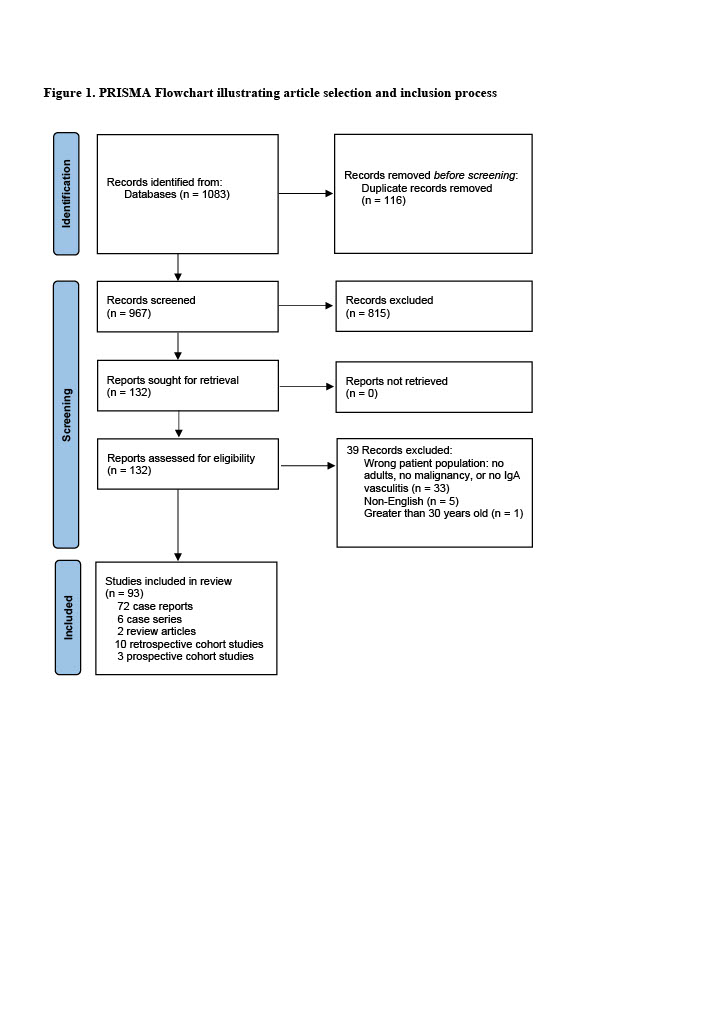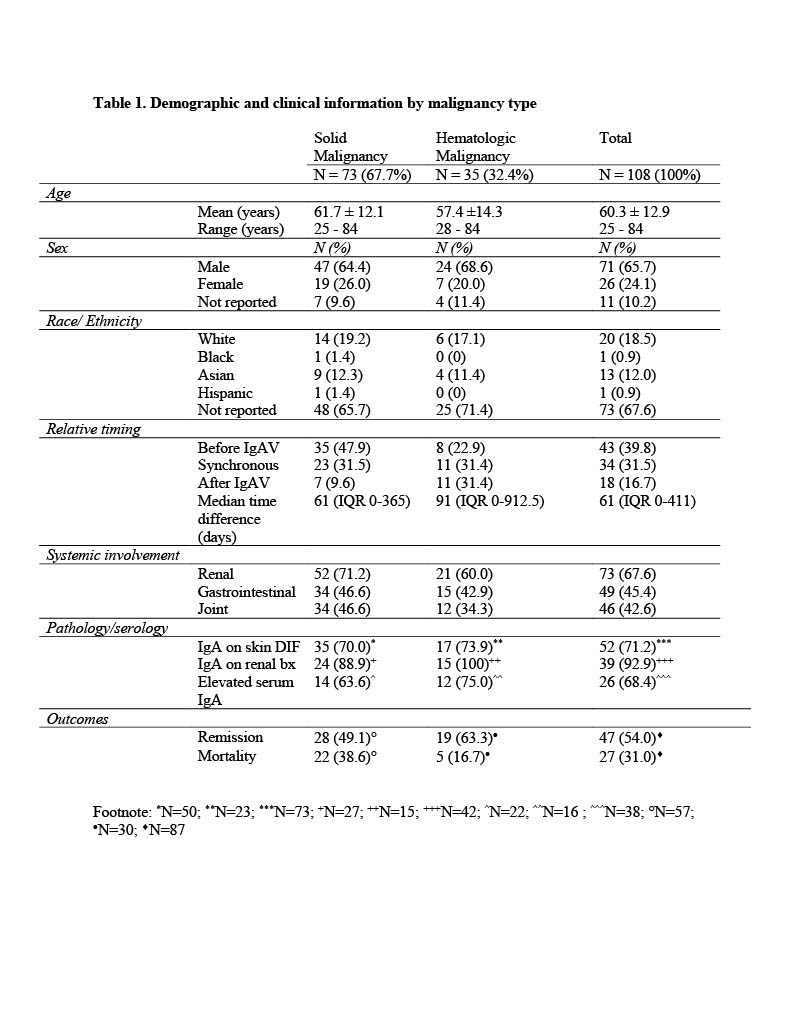Session Information
Date: Sunday, November 12, 2023
Title: (0691–0721) Vasculitis – Non-ANCA-Associated & Related Disorders Poster I
Session Type: Poster Session A
Session Time: 9:00AM-11:00AM
Background/Purpose: IgA vasculitis (IgAV) is associated with malignancy in adult patients [1,2]. The clinical characteristics, temporal relationship, and underlying mechanisms of malignancy-associated IgAV are not well understood. Currently, there are no evidence-based screening guidelines for occult malignancies in adults presenting with IgAV.
Methods: We performed a systematic literature review of five major databases: Cochrane Library, Embase.com, PubMed.gov, Google Scholar, and Web of Science Core Collection using the Preferred Reporting Items for Systematic Reviews and MetaAnalyses (PRISMA) guidelines. A combination of multiple synonyms, controlled vocabulary search terms (MeSH in PubMed and Emtree in Embase), and exhaustive text words were used to search the databases. Two independent reviewers selected studies, extracted data, and determined study quality. A third reviewer adjudicated the article if there was a discrepancy between the 2 reviewers. The articles met inclusion criteria if they contained information regarding IgAV and malignancy in adults older than 18 years-old. Non-English articles and articles older than 30 years-old were excluded.
Results: We screened 967 studies and 93 articles were included, comprising of 108 individual patient cases (Figure 1). The mean age of patients was 60.3±12.9 years, and the majority (n=71, 65.7%) were male (Table 1). Solid malignancy was more commonly associated with IgAV than hematologic malignancy (67.7% vs 32.4%). Malignancy preceded IgAV for most patients with solid cancer, whereas for most with hematological cancer, IgAV preceded malignancy or was diagnosed synchronously. Patients with IgAV and solid malignancies had a significantly higher mortality rate compared to patients with IgAV and hematological malignancies (38.6% vs. 16.7%, p≤0.05). Patients with solid malignancies were also more likely to exhibit systemic involvement of IgAV, including renal, gastrointestinal, joint, and cutaneous symptoms, although the differences were not significant. The majority of patients with skin biopsy had IgA on DIF (71.2%), and of the patients that reported serum IgA levels, 26 (68.2%) had elevated serum IgA.
Conclusion: To our knowledge, this is the largest systematic review of IgAV associated with malignancy. Based on our findings, screening older patients with new-onset or recurring IgAV for malignancy, particularly solid organ cancer, should be considered. Serum IgA levels might serve as a useful, non-invasive screening test since elevated IgA may correlate with underlying malignancy, though further studies are needed to validate these findings.
References
1. Mitsui H, Shibagaki N, Kawamura T, Matsue H, Shimada S. A clinical study of Henoch‐Schönlein Purpura associated with malignancy. Journal of the European Academy of Dermatology and Venereology 2009;23:394-401.
2. Hankard A, Michot J-M, Terrier B, et al. New insights on IgA vasculitis with underlying solid tumor: a nationwide French study of 30 patients. Clinical Rheumatology 2021;40:1933-40.
To cite this abstract in AMA style:
Ghersin H, Toker M, Khanna U, Schwartz R, Wu B, Kumthekar A. The Association of IgA Vasculitis and Malignancy in Adults: A Systematic Review [abstract]. Arthritis Rheumatol. 2023; 75 (suppl 9). https://acrabstracts.org/abstract/the-association-of-iga-vasculitis-and-malignancy-in-adults-a-systematic-review/. Accessed .« Back to ACR Convergence 2023
ACR Meeting Abstracts - https://acrabstracts.org/abstract/the-association-of-iga-vasculitis-and-malignancy-in-adults-a-systematic-review/


